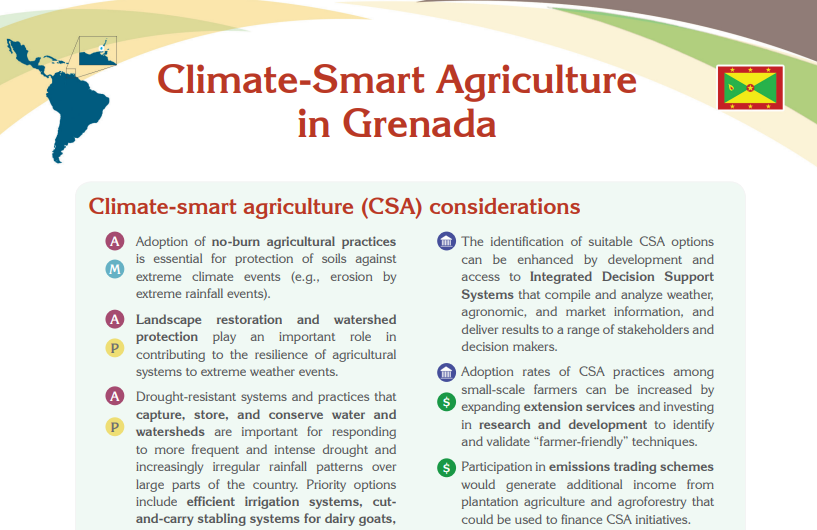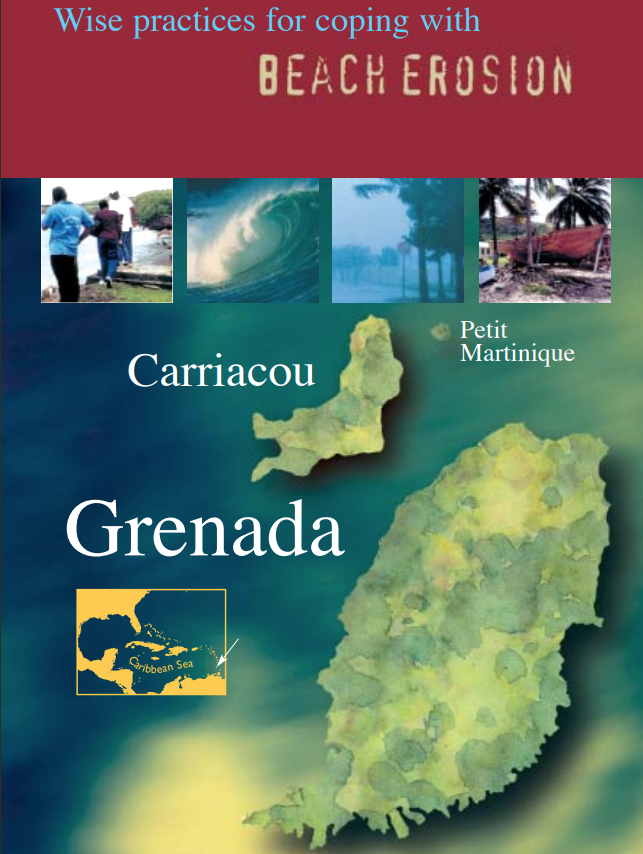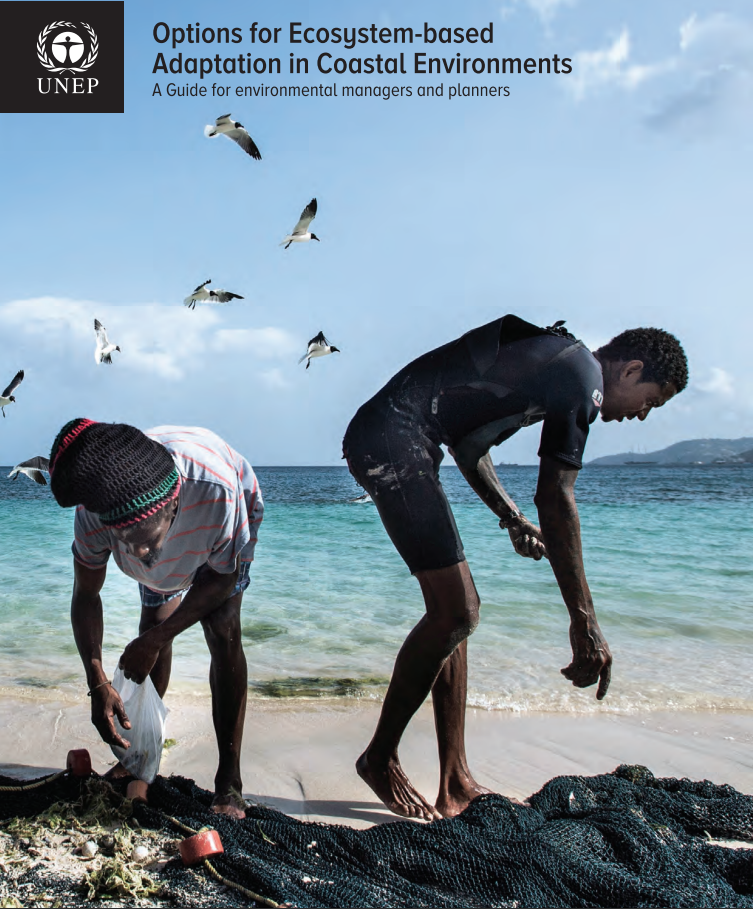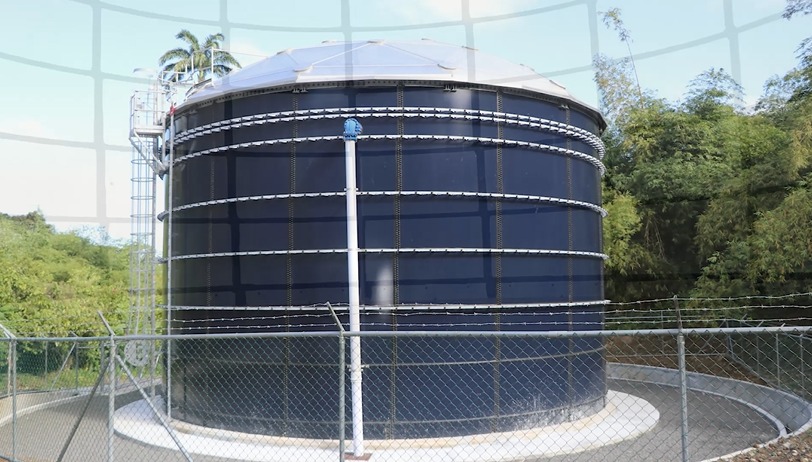
Challenges and Opportunities
The tourism sector in Grenada is a critical component of the island's economy, contributing significantly to GDP, employment, and foreign exchange. However, climate change poses major challenges that threaten the long-term sustainability and resilience of this sector.
Tourism in Grenada faces substantial challenges due to climate change, which directly impacts the island's natural assets and infrastructure, both essential for tourism activities. Rising sea levels threaten Grenada's pristine beaches, which are the main attractions for tourists. Coastal erosion and flooding, exacerbated by storms and hurricanes, damage infrastructure such as resorts, airports, and ports. Grenada also struggles with water availability, with a growing treated water deficit year after year due to a combination of climate change impacts and growing number of users through growth in the tourism sector (see the section on Water Availability) Additionally, Grenada’s coral reefs, which support the island’s rich marine biodiversity and are popular for snorkelling and diving, are threatened by ocean acidification and warming waters. These changes not only endanger marine ecosystems but also reduce Grenada’s attractiveness as a destination for eco-tourism and marine activities.
The changes in seasons and erratic rainfall during the dry season makes it more difficult for tourists to plan their perfect tropical vacation. Another consequence of the increased erratic rainfall is the increase in the mosquito’s population and the risk of associated vector borne diseases such as dengue, zika or chikungunya, which have affected tourism arrivals when the number of reported cases increase (see section on Health). Climate change also increases the intensity of tropical storms and hurricanes in the Caribbean. Grenada, like many small island states, is particularly vulnerable to these extreme weather events, which can cause widespread damage to infrastructure, reduce tourist arrivals, and disrupt the island’s economy. In 2024, Hurricane Beryl wiped 98% of Carriacou’s infrastructure (source: IFRC), including its tourism infrastructure and its growing yachting sector, which had taken decades to build.
Despite these challenges, climate change also presents opportunities for Grenada to transition toward sustainable tourism practices. The growing interest in eco-tourism and sustainable travel offers a chance for Grenada to develop initiatives that promote the conservation of natural resources while still catering to tourists. For example, enhancing the resilience of the island’s tourism infrastructure and creating protected marine areas could both mitigate the impacts of climate change and attract environmentally conscious travellers. Grenada could also diversify its tourism offerings by promoting inland and nature-based tourism, focusing on the island’s rainforests, waterfalls, and hiking trails.
Sector's Governance
Tourism in Grenada is managed by the Ministry of Economic Development, Planning, Tourism, Creative Economy, Culture, Agriculture and Lands, Forestry, Marine Resources and Cooperatives, which is responsible for regulating and promoting the industry. This body coordinates the implementation of policies aimed at sustainable tourism development, which integrates environmental protection with tourism growth. In recent years, the ministry has made efforts to align tourism governance with climate resilience strategies, ensuring that new investments in tourism infrastructure are designed to withstand the impacts of climate change.
Other key institutions that play a role in governing tourism and climate resilience include the Grenada Tourism Authority (GTA) and the Grenada Hotel and Tourism Association (GHTA). These organizations collaborate with the Ministry of Tourism to develop strategies that address both immediate concerns, such as market fluctuations, and long-term climate resilience planning. Their cooperation with international organizations and regional agencies is crucial in enhancing governance structures and capacity-building efforts aimed at fostering resilience in Grenada’s tourism sector.
Policy Framework
Grenada’s tourism policy framework is guided by its National Adaptation Plan (NAP), which integrates climate resilience into the island’s overall development strategies. The NAP identifies tourism as a key sector that must adapt to the challenges posed by climate change. Specifically, the plan outlines measures for protecting coastal areas from erosion, developing more resilient tourism infrastructure, and promoting sustainable tourism practices that reduce the carbon footprint of the sector.
The Grenada Tourism Development Plan also emphasizes the importance of maintaining the island’s natural beauty and resources, including its beaches, forests, and marine ecosystems. This policy framework encourages investment in eco-friendly resorts, renewable energy systems for tourism facilities, and low-impact tourist activities.
The Non-Biodegradable Waste Control Act of 2018 further complements the tourism policy framework by addressing waste management issues that are critical to preserving the environment. The act regulates the use of plastics and promotes recycling, helping to maintain clean beaches and pristine marine environments, which are essential for Grenada’s tourism sector. Further plans from the Grenada Solid Waste Authority to implement recycling and composting programme would improve the preservation of the environment (see Solid Waste section)
Regional and International Agreements
Grenada’s tourism sector benefits from its involvement in various regional and international agreements that promote climate resilience and sustainable tourism. One significant initiative is the Caribbean Tourism Organization's (CTO) Sustainable Tourism Program, which aims to support Caribbean nations in developing sustainable tourism practices and reducing the environmental impact of the industry. Through this program, Grenada gains access to resources and technical assistance that help the country improve its tourism infrastructure and adapt to climate change.
Grenada is also a signatory to the Paris Agreement, which commits the country to reducing its greenhouse gas emissions and promoting climate resilience across all sectors, including tourism. In addition, Grenada participates in the Eastern Caribbean Regional Ocean Policy (ECROP), which focuses on sustainable management of marine resources, critical for tourism. The country’s involvement in these agreements facilitates collaboration with international partners and access to financial and technical support for climate adaptation projects which can benefit the tourism industry.
The Grenada Development Bank, which is an accredited entity for the Green Climate Fund (GCF), has implemented several programs financed by the GCF which support the tourism sector such as the EDA Project (Enhanced direct access climate adaptation revolving fund).
Economic Review of Tourism in Grenada
Tourism remains a cornerstone of Grenada’s economy, with the island welcoming over 500,000 visitors annually prior to the COVID-19 pandemic. The sector contributes more than 20% to Grenada’s GDP and is a major source of employment. Grenada is known for its luxurious resorts, beautiful beaches, marine parks, and cultural events such as the annual Spicemas Carnival. The island’s unique attractions, such as the Underwater Sculpture Park, play a crucial role in drawing international visitors.
Post-pandemic recovery in Grenada’s tourism sector has been gradual, with the government and private sector working together to recover the losses in airlift, increase the number of available rooms and promote the island as a safe and desirable destination. However, the long-term success of the tourism industry in Grenada hinges on its ability to adapt to climate change and develop more resilient infrastructure.
Efforts to develop sustainable tourism have seen growth in eco-tourism initiatives and environmentally conscious tourism projects. The Spice Isle is increasingly positioning itself as a destination for travellers seeking low-impact experiences that contribute to environmental conservation.
Overall, while Grenada’s tourism sector faces significant challenges due to climate change, the country is taking proactive steps to address these issues and capitalize on opportunities for sustainable growth. By investing in resilient infrastructure, promoting eco-tourism, and participating in regional and international climate adaptation initiatives, Grenada is working to ensure the long-term sustainability of its tourism industry.




